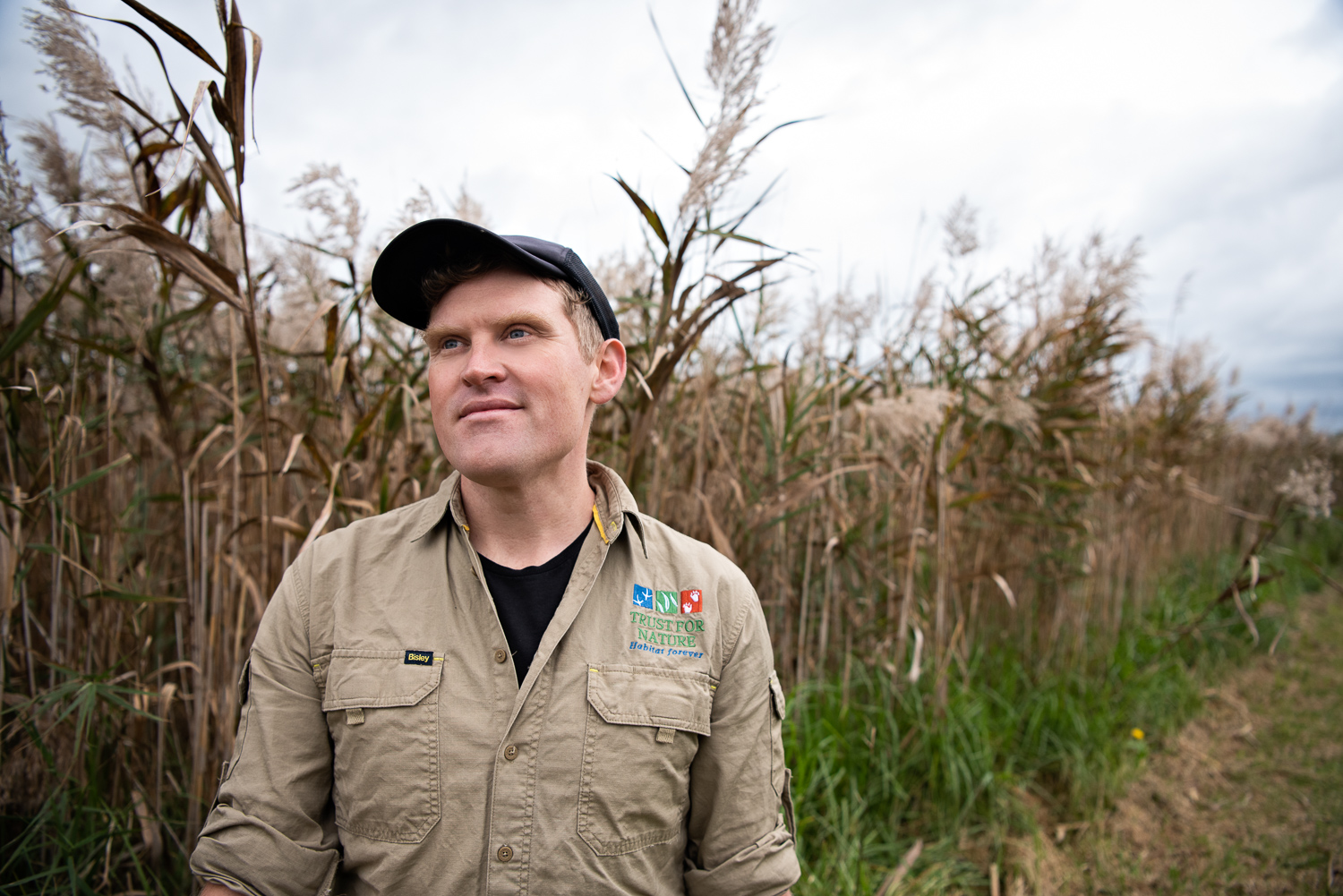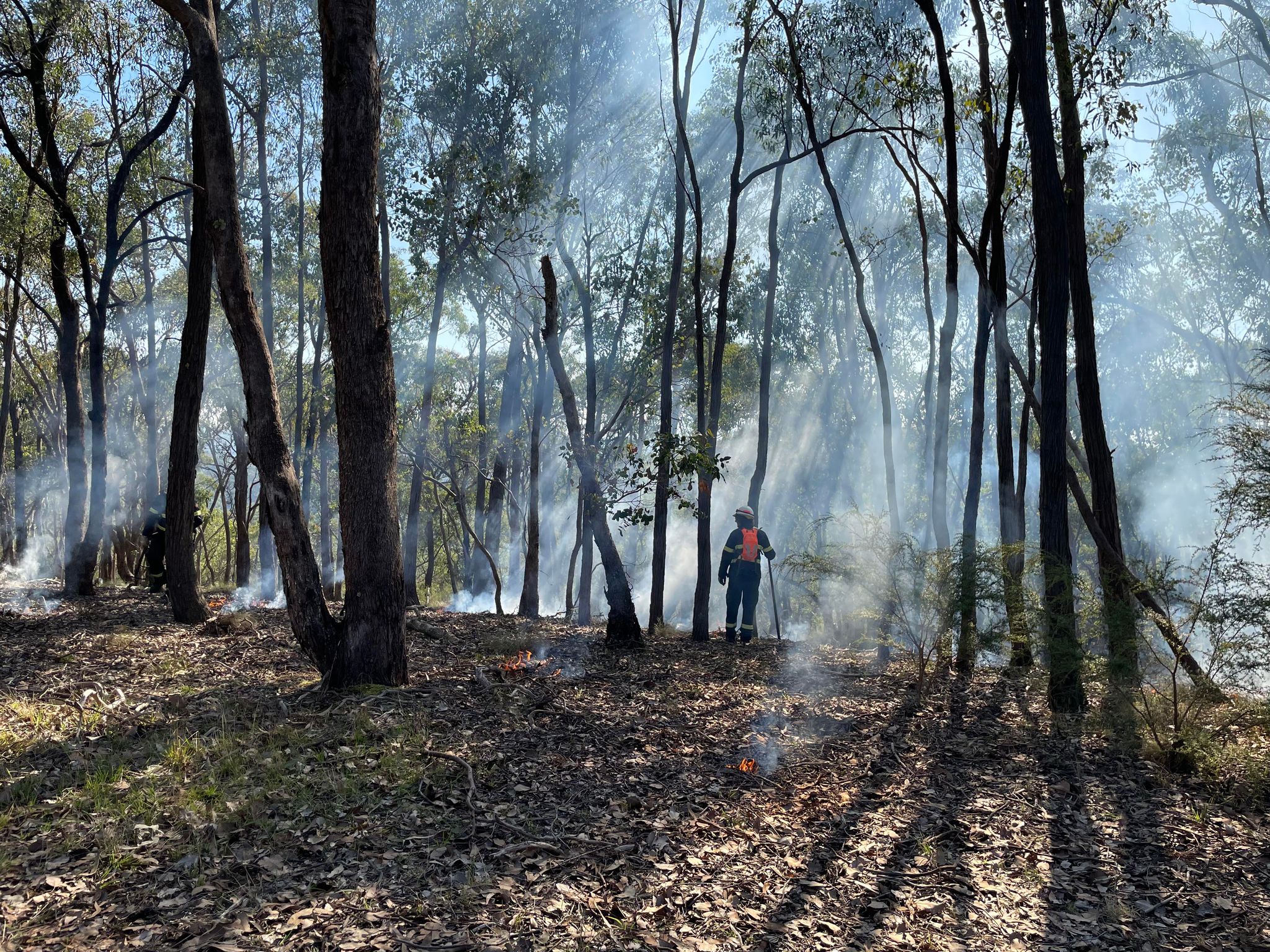Working towards reconciliation
Trust for Nature's Ben Cullen. Image: Annette Ruzicka.

Cultural burning on Willis Nature Park is helping keep the reserve healthy.

Ben Cullen is Trust for Nature’s South Central Area Manager. He oversees our conservation efforts on the lands of the Wurundjeri, Bunurong, Wadawurrung and Eastern Maar peoples, and he has played a key role in developing partnerships with First Peoples that meet conservation goals and the aspirations of Traditional Owners. Here, we chat to him about what’s he’s been working on with First Peoples, and why reconciliation is so important.
You’ve just recently been working with the Wurundjeri Narrap Team on a cultural burn at Trust for Nature’s Willis Nature Park. How did that come about?
The Wurundjeri Corporation received some funding to manage Willis Nature Park and they’re taking a lead role in caring for this special place, undertaking weed control, animal monitoring, and incorporating Aboriginal fire management. It was amazing to see the team and their expertise in action.
Building Traditional Owner knowledge into managing our reserves is really important. We’ve worked for a long time to find ways to support Wurundjeri to be connected to Willis Nature Park and have a say in its future. Our role is to support Wurundjeri, assist them in their ability to manage the land and facilitate self-determination where we can.
A huge added benefit is the amount that we’re learning at Trust for Nature. Even though we have strong ecology and land management knowledge, we learn so much when we’re part of First Peoples efforts. This is knowledge that can be applied to other reserves and when we’re working with covenantors.
You’re also involved with the Warreen Beek Rangers program providing conservation training for First Peoples, which is now in its seventh year. How has it changed over that time?
This year we’ve got 17 students, our biggest class yet. Each year the course evolves because we make more connections and make more opportunities for people to be involved in ecological and cultural activities. We’re also thrilled to have Ash Bartley [First Peoples Partnerships Manager at Trust for Nature] come on board and play a leading role in expanding and improving the course.
This course was created by Elders and community members. It’s self-determined and Trust for Nature’s role is to facilitate it. Over the years, what’s been exciting is to watch people who might not have completed higher education finish the course and do amazing things that are now shaping Victoria. Each year we have past students wanting to come back and teach new students.
What is awesome is the amount of knowledge that people have even if they don’t realise it. By bringing people together in a safe space we’re supporting them to realise that knowledge. It’s also great for us, informing the work we do and thinking differently about it.
When you’re working with First Peoples, how do you go about it in a way that supports their aspirations?
It seems to me that a lot of leaders in First Peoples communities are ready to make big changes for the environment. Being part of that journey, even just assisting where we can is really a privileged position for us to be in.
One of the best things we can do is listen. A big mistake is jumping into partnerships with First Peoples and saying, ‘we should do this’ or ‘we should do that’. We first need to listen to what Traditional Owners want to do, which is all the better for understanding Indigenous culture and how we can play a role in their aspirations.
What are the conservation benefits of learning from Aboriginal Traditional Knowledge?
First Peoples’ knowledge is so complex and so poorly understood by Western science. There’s an incredible amount of knowledge that could be used to improve conservation outcomes by enabling Traditional Owners to take the lead on conservation efforts.
At Willis Nature Park for instance animal monitoring by the Wurundjeri Narrap Team has revealed the presence of species that we didn’t know live on the reserve. Traditional cultural practises like burning are demonstrating the benefits of partnering with First Peoples.
What motivates you to support efforts towards reconciliation, at Trust for Nature and beyond?
I’m really excited by the incredible amount of Traditional Knowledge that First Peoples hold, and how that could improve outcomes for conservation by enabling Traditional Owners to take the lead in caring for Country.
I only have to listen to people from the Warreen Beek Rangers program to understand how widespread the injustice perpetrated against First Peoples is. If we can use our positions in our organisations to do whatever we can to reverse that injustice and treat people with the respect they deserve, everyone’s better off.